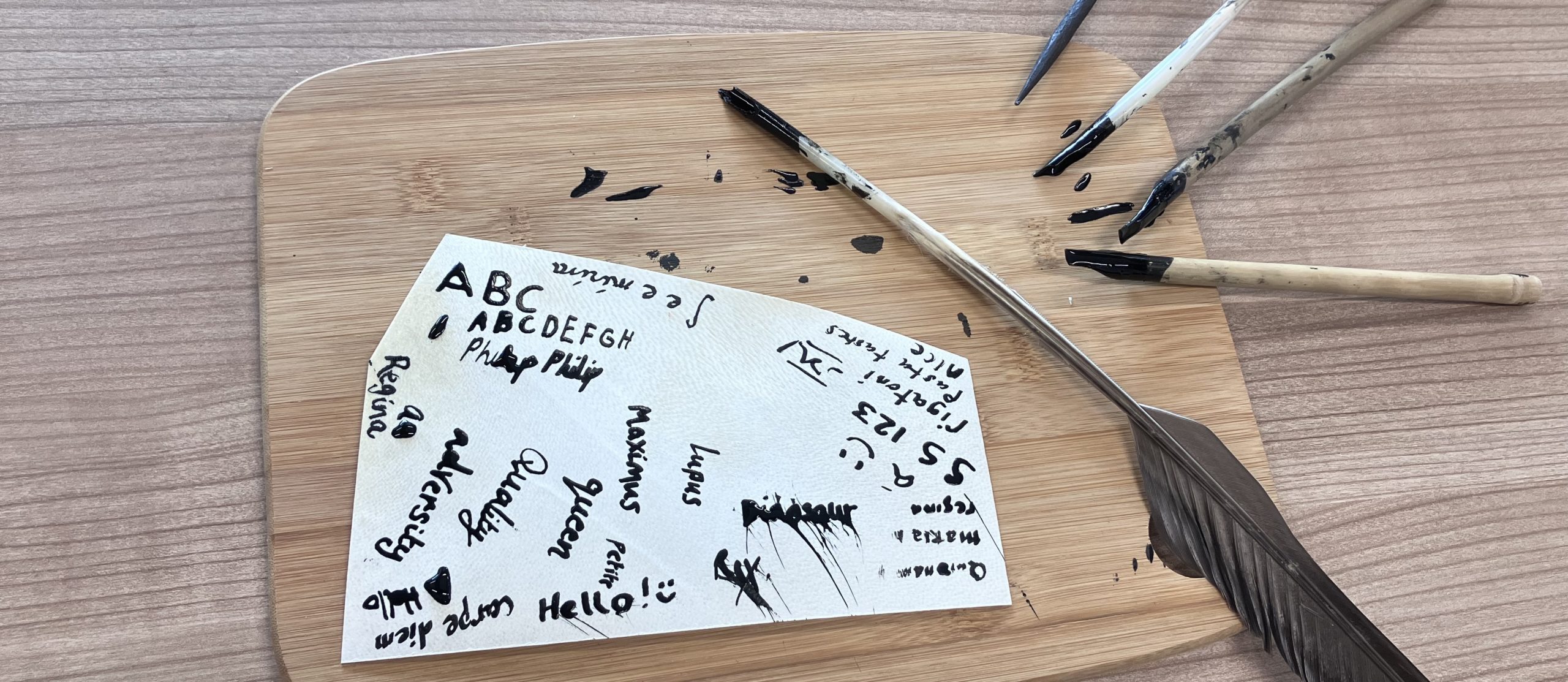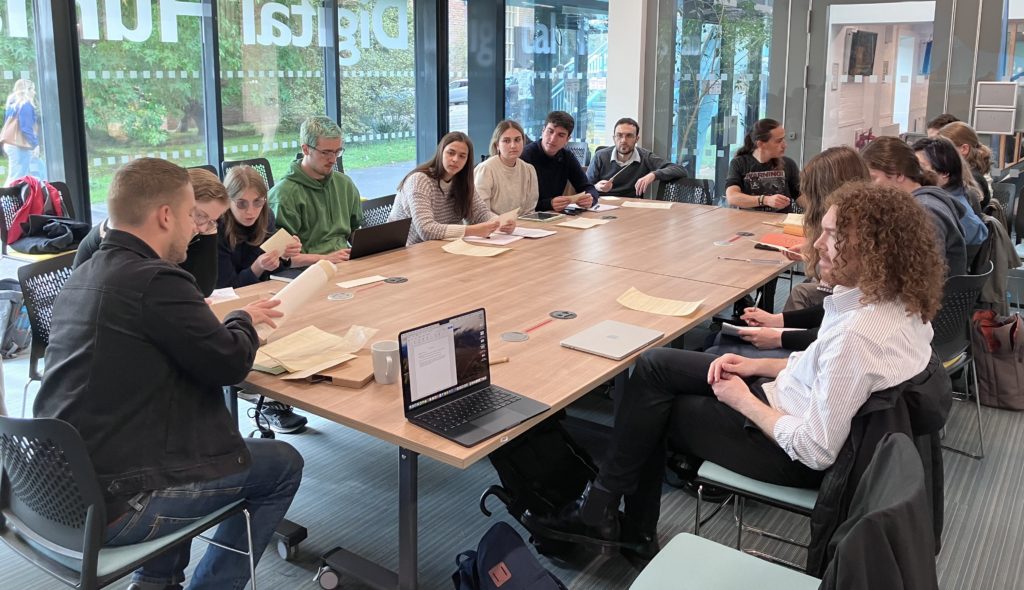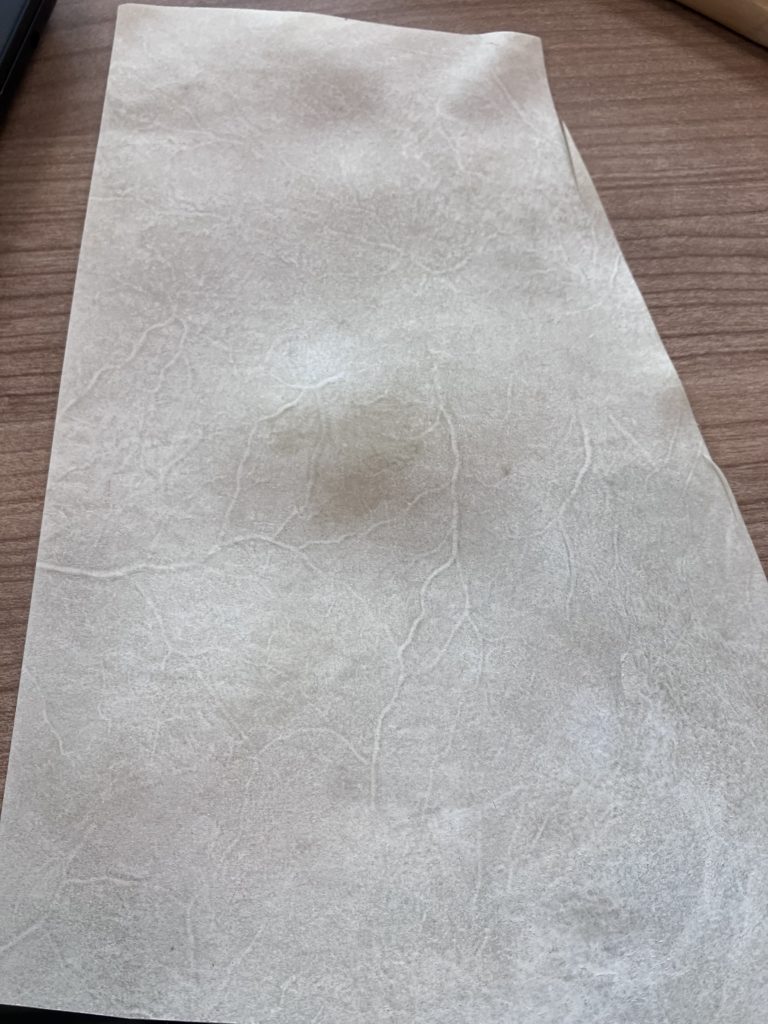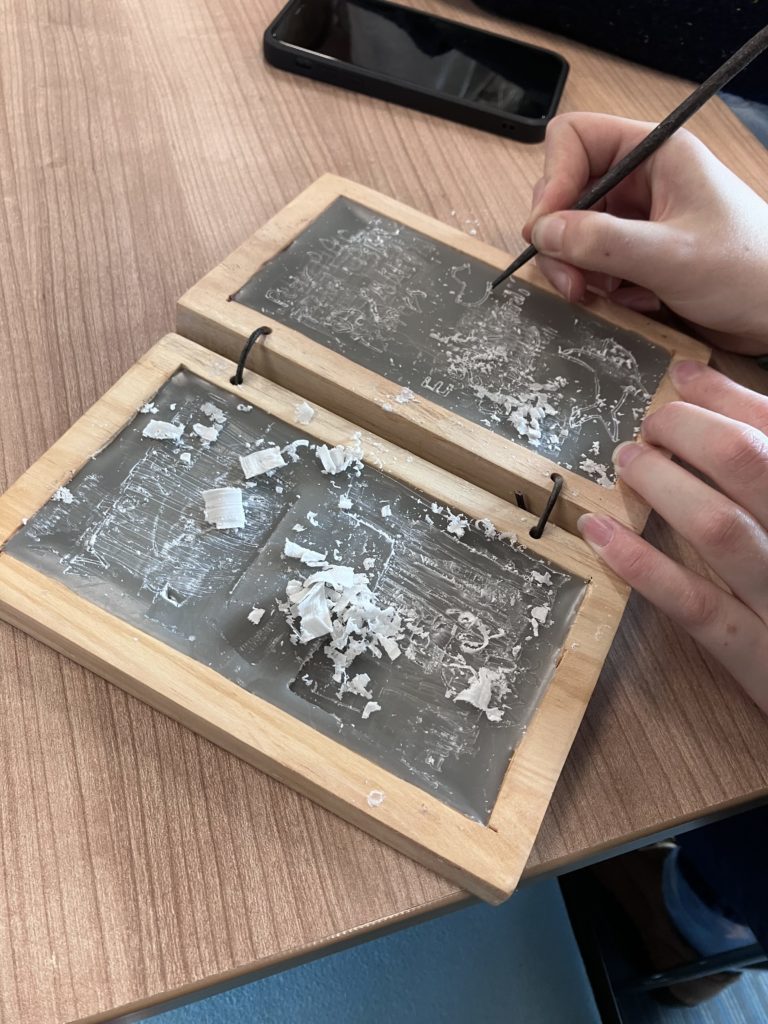
Posted by Thomas Hinton
29 October 2024In early October we were delighted to host a visit from Professor Benjamin Pohl of Bristol, a specialist of medieval European historiography and manuscript studies. Ben has designed a wonderful resource for bringing scribal culture to life, which he calls the Scriptorium Suitcase, and he used this as the basis for a workshop attended by a large mixed group of colleagues, undergraduates and current and recent postgraduates. Lugging the Scriptorium Suitcase (in reality more of an oversized attaché case) all the way from Bristol was no small task, and we are grateful to Ben for putting both his subject expertise and his heavy lifting skills at the service of the Exeter CMS community.

Ben started off by explaining that his portable scriptorium was originally developed as part of a teacher training programme for academics (the Bristol equivalent of our Academic Professional Programme), when he was thinking about how to introduce students to scribal practice in a hands-on way. With the help of a modest grant, he has built a small library of writing materials which he went on to demonstrate for us. We began with papyrus, and Ben explained the limitations of this as a writing surface that contributed to making parchment the more fitting medium for medieval writing – notably, you can only write on one side of papyrus, and it will split and tear when folded. He then moved onto parchment (useful to know that you can buy ethically-sourced and affordable parchment offcuts on Etsy). There followed a hands-on segment where we were all able to try out writing in ink on papyrus and parchment, as well as using an iron tool to make drypoint markings on both parchment and the reusable wax tablets used by scribes for drafting. The impressions left by this tool were surprisingly faint, suggesting that the surfaces of medieval manuscripts may retain a good deal of evidence of scribal (and readerly) activity that sustained close attention can bring out. Ben himself has written on one such case, where he was able to recover the drypoint outlines of a planned illustrative programme in Dudo of Saint Quentin’s Historia Normannorum by 3D imaging of a manuscript in Rouen municipal library; in so doing, he drew attention to a strikingly early use of illumination in Latin historiography.


Participants in the workshop appreciated the experience of handing the different tools and materials used to produced the finished form of manuscripts with which we are all more familiar; they also enjoyed the opportunity of meeting a range of students from across the different CMS disciplines. Many thanks to Ben – we hope to see you again soon in Exeter!